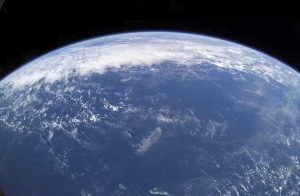Neel V. Patel in Popular Science:
 In a new paper published in the Journal of Geophysical Research: Planets, Arizona State University researchers suggest that water on Earth originated from material brought by asteroids, assisted by some leftover gas strewn about after the sun’s formation.
In a new paper published in the Journal of Geophysical Research: Planets, Arizona State University researchers suggest that water on Earth originated from material brought by asteroids, assisted by some leftover gas strewn about after the sun’s formation.
This is certainly far from the first time people have suggested water as we know it (and drink) it has an extraterrestrial origin. Historically, the easiest explanation has been that all of Earth’s water came from asteroids that impacted the Earth during the early days of its 4.6 billion year life. Why? Water from Earth shares the same chemical signatures as water found in asteroids—specifically, the ratio of deuterium (a heavy hydrogen isotope) to normal hydrogen. And previous experiments have shown that, in spite of all the heat and energy created by these massively powerful collisions, that water could have been preserved as it found itself on the yet-to-be-blue planet.
Still, those theories have never been quite enough to fill in some of the other blind spots we have about water’s origin. The hydrogen found in Earth’s oceans isn’t necessarily the same sort of hydrogen present throughout the rest of the planet—samples collected closer to the Earth’s core possess exceedingly low amounts of deuterium, which seems to suggest this hydrogen didn’t come from asteroid impacts.
More here.
